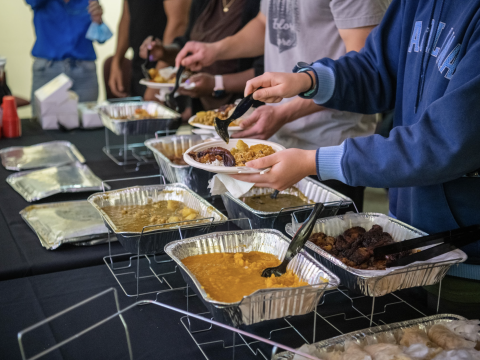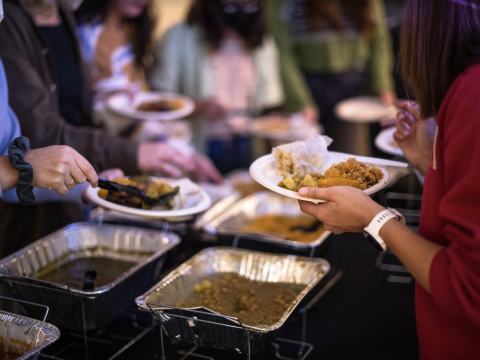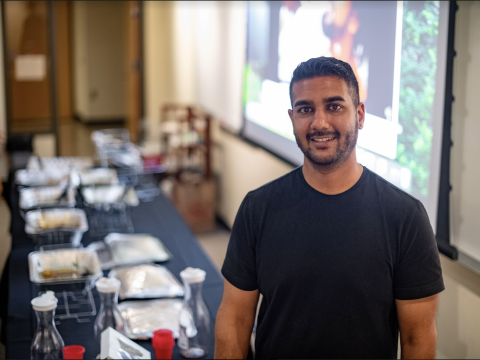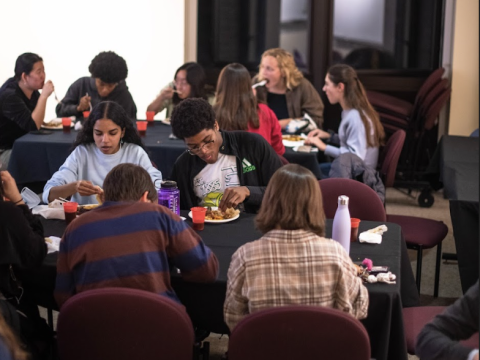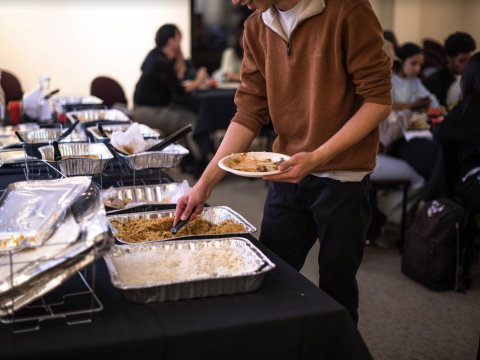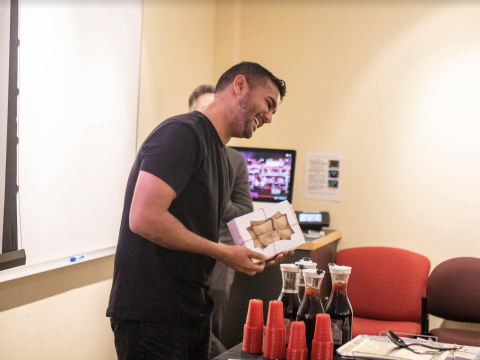Philly Caribbean Restaurateur Visits Campus; Supports Preparation for Student Travel to Trinidad and Tobago
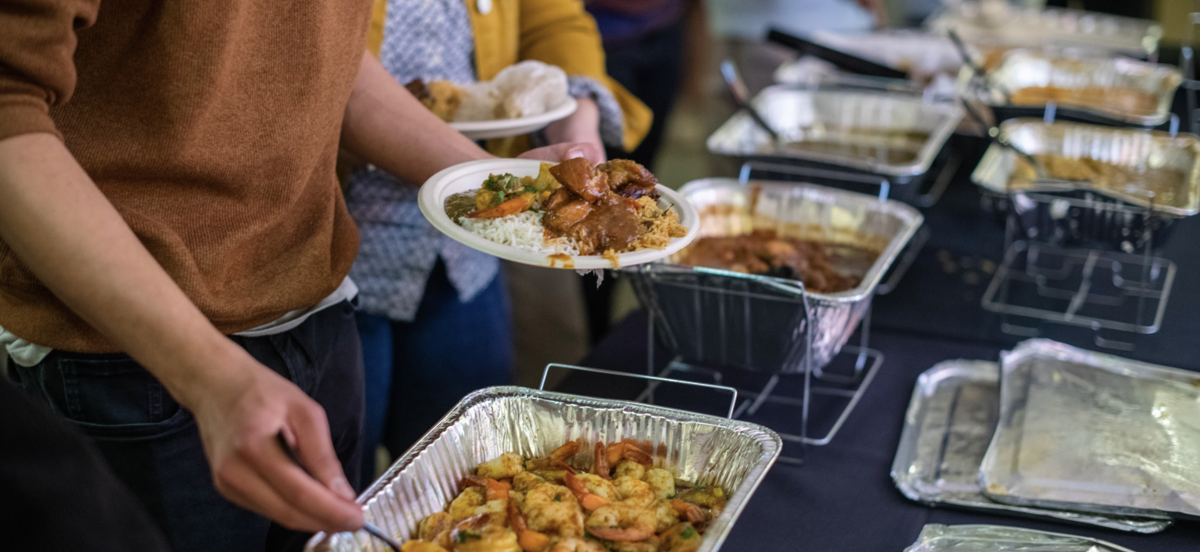
Students serving them selves to dinner catered by Flambo Photo Credit: Holden Blanco '17
Details
Botany students prepare for their March trip to Trinidad and Tobago by being introduced to the culture through traditional Trinidadian food.
On November 3rd, students from Professor Jonathan Wilson's Botany course were invited to a dinner catered by Flambo, a Trinidadian restaurant based in Philadelphia. As they entered, students were greeted with videos of Trinidadian steel pan orchestra performances, the national instrument that is a core component of Trinidad and Tobago's cultural heritage. Afterwards, the manager, Kevin Ramlochan, briefly introduced the different foods and their specific origins. Trinidad and Tobago cuisine is an infusion of mainly East Indian, African, and Chinese cuisine, among other cultures. Kevin explained that Trinidad and Tobago has cultural roots in many countries due to its demographic diversity.
The dinner also served as an introduction to the country and culture for a group of students selected to travel to the country to extend their learning during spring break. The trip will be led by Stephanie Zukerman, the International Programs Manager at Haverford's Center for Peace and Global Citizenship, along with Professor Wilson, an Associate Professor of Environmental Studies at Haverford College. Zukerman, Wilson and nine students will be taking part in a 10-day field study in Trinidad and Tobago that is focused on botany, culture, and history, which will run for the 4th time in March 2023.
The collaborative field study combines environmental focuses within cacao cultivation agriculture, biodiversity, ecology and ecotourism and overlaps with aspects from culture and history. Students are taught in the classroom and then are given the opportunity to re-conceptualise these ideas through experiential learning.
The 2023 trip will be similar to the trip Zukerman and Wilson led in 2018, which Haverford film students documented. On the trip, Students were asked to actively engage in the science and culture within Trinidad and Tobago through various activities and visits. Students visited a local market, Green Market Santa Cruz, and the University of West Indies Cocoa Research Center to connect with researchers. One way students built the connection between the culture and ecology was through their tour guide, Jason Radix - a Trinidadian currently living in Tobago and one of the top naturalists in the country. He led the class on a hike through the primary rainforest in Tobago, answering questions along the way. To help students connect to history, students met with Dr Rita Pemberton, the former chair of the history department at the University of West Indies, who gave them a talk about the history of agriculture in Trinidad. Students also visit Hindu temples, where they can learn more about the history of the largest ethnic group, East Indians, on the island.
At a conference this past fall, Wilson and Zukerman explained that the trip also has a long-term impact on students' futures, whether it be a change or influence on their college path, career path, or personal life.
